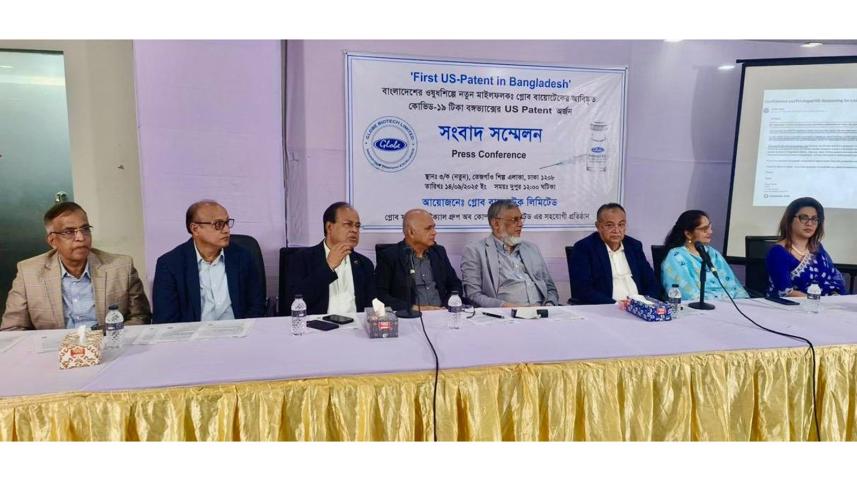Globe Biotech’s COVID-19 Vaccine 'Bangavax' gets US Patent

Globe Biotech Limited, a concern of Globe Pharmaceutical Group of Companies Ltd., has been granted a United States patent for its COVID-19 vaccine - "Bangavax".
The Dhaka-based company, which began operations in 2015 with a state-of-the-art research laboratory, focuses on biologics, novel drugs, and biosimilars for illnesses including cancer, arthritis, anemia, hypertension, and autoimmune diseases, says a press release.
During the global coronavirus outbreak, Globe Biotech's scientists, led by Dr. Kakon Nag and Dr. Naznin Sultana, began developing detection kits, vaccines, and therapeutics. Their mRNA vaccine, Bangavax, later received trial approval from the Bangladesh Medical Research Council (BMRC) and the Directorate General of Drug Administration (DGDA).
The complete coding sequence of the vaccine's target was first published in the NCBI database (USA) in 2020. Research papers were subsequently published in Vaccine (Elsevier, USA) and Scientific Reports (Nature, UK). That same year, the World Health Organization (WHO) included Bangavax in its official list of COVID-19 vaccines.
Bangavax also marked a first for Bangladesh by undergoing successful trials on monkeys, where it was proven safe and effective.
The newly granted US patent includes 30 invention claims covering the vaccine's nanotechnology-based platform, which the company says makes Bangavax the world's only single-dose mRNA vaccine proven effective against multiple variants.
Globe Biotech says the platform can also be adapted to develop vaccines with DNA, protein, inactivated virus, and recombinant virus technologies, as well as medicines for diseases such as cancer, diabetes, and autoimmune disorders.
According to the company, the patent opens the way for Bangladesh to produce and distribute advanced vaccines domestically, reduce dependency on imports, and explore exports to international markets. It also highlights Bangladesh's scientific capabilities as the country prepares to graduate from least-developed country (LDC) status in 2026 and face challenges linked to the Fourth Industrial Revolution.



 For all latest news, follow The Daily Star's Google News channel.
For all latest news, follow The Daily Star's Google News channel.
Comments